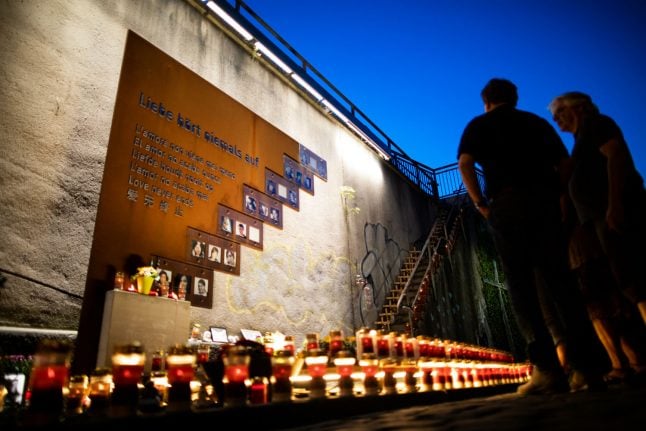The negligent homicide case, being held in Düsseldorf, was terminated for seven of the 10 defendants, leaving only three in the dock who have insisted they want to clear their names.
For the father of one victim, the news was a “sledgehammer blow,” said his lawyer Rainer Dietz, who added that “it seems our system can't handle this complex case”.
SEE ALSO: July 24th 2010: The day the music stopped
Eight men and 13 women were crushed, trampled to death or suffocated and 650 more injured in the 2010 crowd panic around a pedestrian tunnel at the festival in the city of Duisburg.
After years of delays, the court in late 2017 put on trial four festival organizers and six city officials on charges of negligent homicide and causing bodily harm.
Prosecutors accused them of “serious errors in planning and authorizing” the festival at a former rail freight yard in the Rhine river city.
However, the court has now suspended the trial against seven of the 10 accused, arguing that since many people shared culpability, the individual level of guilt was difficult to assess.
SEE ALSO: Techno festival organizers on trial in Düsseldorf over 21 deaths during stampede
'Shocked, speechless'
The court also argued it would not be able to hear the more than 500 witnesses still scheduled to testify before a 10-year statute of limitations expires in July 2020.
 Onlookers lay flowers at the scene of the disaster in 2011. Photo: DPA
Onlookers lay flowers at the scene of the disaster in 2011. Photo: DPA
It decided to order punitive payments of ´€10,000 each for three of the defendants, all former staff of event organizer Lopavent.
The court would have terminated the entire case, but the three accused who face fines insisted the trial continues so they can clear their names.
Victim's family lawyer Dietz was among many who voiced their disbelief, telling AFP that his client was “shocked” and left “speechless”.
Another victim's lawyer, Julius Reiter, said that, while the trial had brought some clarity on how the disaster unfolded, “the hope that those responsible will be tried is dead”.
'Never again'
The Love Parade started as an underground event in the former West Berlin in 1989, the year the Wall fell, before moving to other German cities, at times drawing over a million revellers.
The disaster victims were aged between 17 and 38 and came from Germany as well as Australia, China, Italy, the Netherlands and Spain.
The scale of the trial and the huge public interest forced court officials to move the proceedings to a convention hall in Düsseldorf.
The tragedy led festival organizers to declare that the Love Parade would never be held again “out of respect for the victims”.



 Please whitelist us to continue reading.
Please whitelist us to continue reading.
Member comments